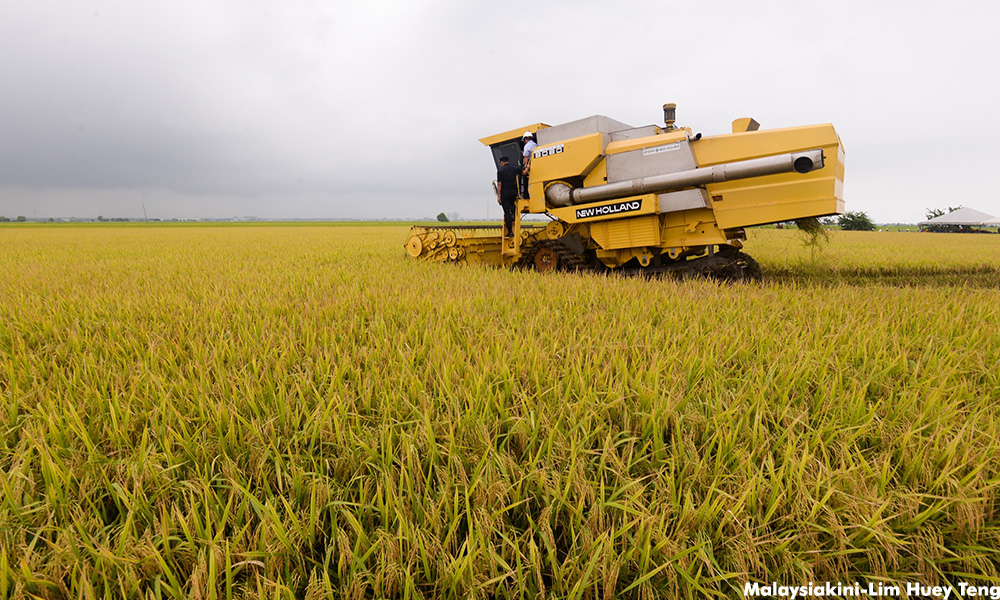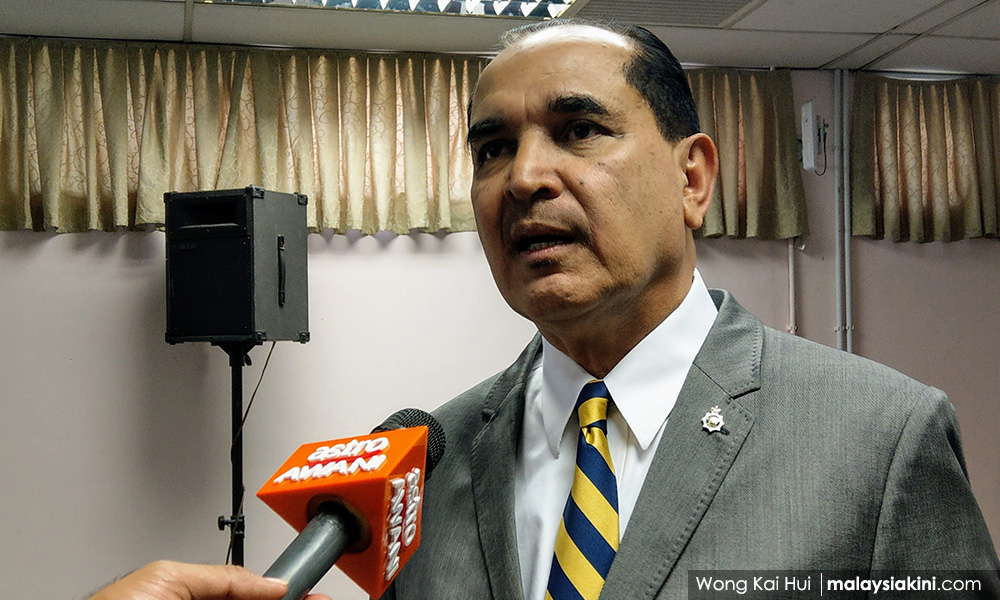Rice smuggling activities are still rampant in border areas despite regular enforcement operations mobilised by the Ministry of Agriculture and Food Industries’ Padi and Rice Regulatory division.
Foreign syndicates are known to smuggle rice, purchased cheaply in countries such as Thailand and Vietnam, through illegal routes or lorong tikus at the border into Malaysia where it is sold at the standard price of about RM2.60 a kilogramme or at even higher prices.
According to rice industry coalition Padi Rescue chief coordinator Nurfitri Amir Muhammad, the tactic used by the smugglers has helped them to reap huge profits.
It was reported recently that rice smuggled from Thailand is being sold at RM48 for a 10kg pack, which was RM16 higher than the usual price.
Nurfitri Amir said he has received information from his sources that the syndicates have grown bold enough to use approved permits (AP) to smuggle rice into Malaysia through container ships.
“My sources also claimed that by just using one AP, the syndicates can bring in excess goods and that this is happening at our ports and borders,” he told Bernama.

Nurfitri Amir also wondered how the syndicates dispose of the contraband rice “dumped” into the Malaysian market considering that rice stocks are usually sold to wholesalers and retailers such as supermarket chains and sundry shops.
Long-standing issue
The issue of rice smuggling is not a new one and has over the years received wide media coverage. The authorities have swooped on smugglers whose modus operandi were exposed in the media but despite enforcement activities, smuggled rice is still being sold openly in the market.
On Sept 24, Azman Mahmood, who is director-general of Padi and Rice Control at the Ministry of Agriculture and Food Industries, was quoted as saying his officers recently managed to seize 227 bags of imported rice valued at RM34,000 from a shophouse in Pandan Mewah, Kuala Lumpur.
He said the rice was smuggled into the country by a syndicate.
“It was claimed that the smuggled rice was better in quality than the rice imported by Bernas (Padiberas Nasional Bhd) and it (the syndicate) was selling the rice to retailers at RM5 a kg.
“It’s just a tactic they use to market their rice… in fact, the rice imported by Bernas is of higher quality,” Azman said, adding that action can be taken against rice smugglers under Section 8 (a) of the Control of Padi and Rice (Licensing of Wholesalers and Retailers) Regulations 1996.
Padi farmers’ income threatened
National Council of Professors member Prof Dr Mohd Fauzi Mohd Jani opined that as long as rice smuggling syndicates operate, they will continue to disrupt the ecosystem and income of Malaysia’s padi farmers.

While he described the government’s intention to raise Malaysia’s rice self-sufficiency level to 75 percent as proactive, he said the nation’s dependence on rice imports (25 percent of rice consumed in Malaysia is imported), as well as the rampant rice smuggling activities, will continue to affect the income of padi farmers.
Mohd Fauzi said rice smuggling rings were resorting to cunning tactics, whereby they sell their rice to small sundry shops and night market traders at prices that are lower than that of locally produced rice.
“These syndicates have been operating in this country for a long time, hence they are familiar with the ins and outs of the rice business and they know how to dispose of their stocks. Of course, what they are doing is illegal as they are not paying import taxes,” he added.
Mohd Fauzi suggested that the Ministry of Agriculture and Food Industries sets up a steering committee, comprising industry players such as the Farmers Organisation Authority and padi farmers associations, to address the issue of rice smuggling and increase the nation’s rice production.
“The proposed steering committee can also coordinate their (padi farmers’) needs, for which RM1.7 billion has been allocated under Budget 2021, including padi price subsidy of RM570 million, padi planting incentive and subsidy of RM960 million and hill padi fertiliser subsidy of RM40 million,” he said.
He also said that Bernas, which has a monopoly on rice supply in Malaysia, and its network of companies should increase the number of granaries to store rice stocks to ensure adequate supplies for up to three to six months. This is important now in view of the ongoing Covid-19 pandemic, he added.
Mohd Fauzi also proposed that the government develops a digital monitoring centre with the help of local experts to enable the authorities to analyse the padi and rice market and take the necessary follow-up action to contain the effects of any disaster that may pose a threat to food security.

Crime analyst Akhbar Satar, meanwhile, said the seemingly endless issue of rice smuggling at the nation’s border areas is due to the existence of border police personnel who lack integrity and allow the illegal activity to take place.
“Here we are just talking about rice and subsidised goods that are smuggled in and out of the country. There is also the issue of human, drug and arms trafficking… for me, all these are huge problems too for which we must find a solution because they are a danger to the nation,” he said, adding that only security personnel of high integrity should be posted to high-risk zones, including border areas.
“The officers should be transferred after they have served for three years to prevent them from being influenced by unhealthy practices like taking bribes,” Akhbar said.
He said the Home Ministry and National Security Council should also consider ways to upgrade border monitoring and surveillance.
“We now have drone technology, as well as closed-circuit television cameras. These can help enforcement agencies to do their work more effectively,” he added.
- Bernama




No comments:
Post a Comment
Note: Only a member of this blog may post a comment.